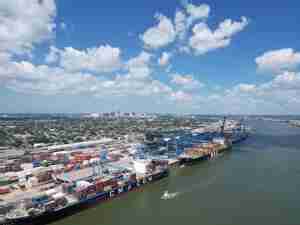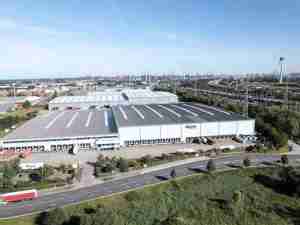JIMCO’s new facility is located adjacent to the North Charleston Terminal at the South Carolina Public Railways’ Remount Road facility. It will receive product -- such as agricultural bulk commodities -- by rail or truck and convey it into international shipping containers for export.
Increased global consumption, particularly in Asia, is pushing commodity exports. Strong demand for empty containers in the U.S. interior to serve growing exports is another factor driving the local transload operation in the Port of Charleston, where there is an ample supply of empty equipment for exports.
“JIMCO is proud to join the Port of Charleston community,” said Jimmie Collins, president and founder of JIMCO. “Our new Charleston facility gives farmers, agricultural interests and other bulk cargo shippers a new, cost-effective way to get their product to overseas buyers through a productive, deep-water port.”
“The Port of Charleston and South Carolina welcome JIMCO to our State,” said Paul McClintock, senior vice president and chief commercial officer of the South Carolina Ports Authority. “We expect that exports will continue to increase, and Charleston is well-positioned to serve this growing business.”
South Carolina Public Railways (SCPR) is central to the project. JIMCO’s Charleston operation is located on property owned by SCPR, and SCPR will provide on-site switching services. Both Norfolk Southern and CSX serve the site.
“We are pleased to have JIMCO operating at Public Railways, utilizing the Port of Charleston, and supporting the economic viability of our State,” said Jeff McWhorter, president and chief executive officer of SCPR.
With the region’s deepest channels, ocean carriers in Charleston can take on more and heavier export loads before sailing vessels at actual drafts up to 48 feet. Rail-to-container transloading of agri-bulk cargos, which are typically denser and heavier than import loads, can reduce transportation costs.









